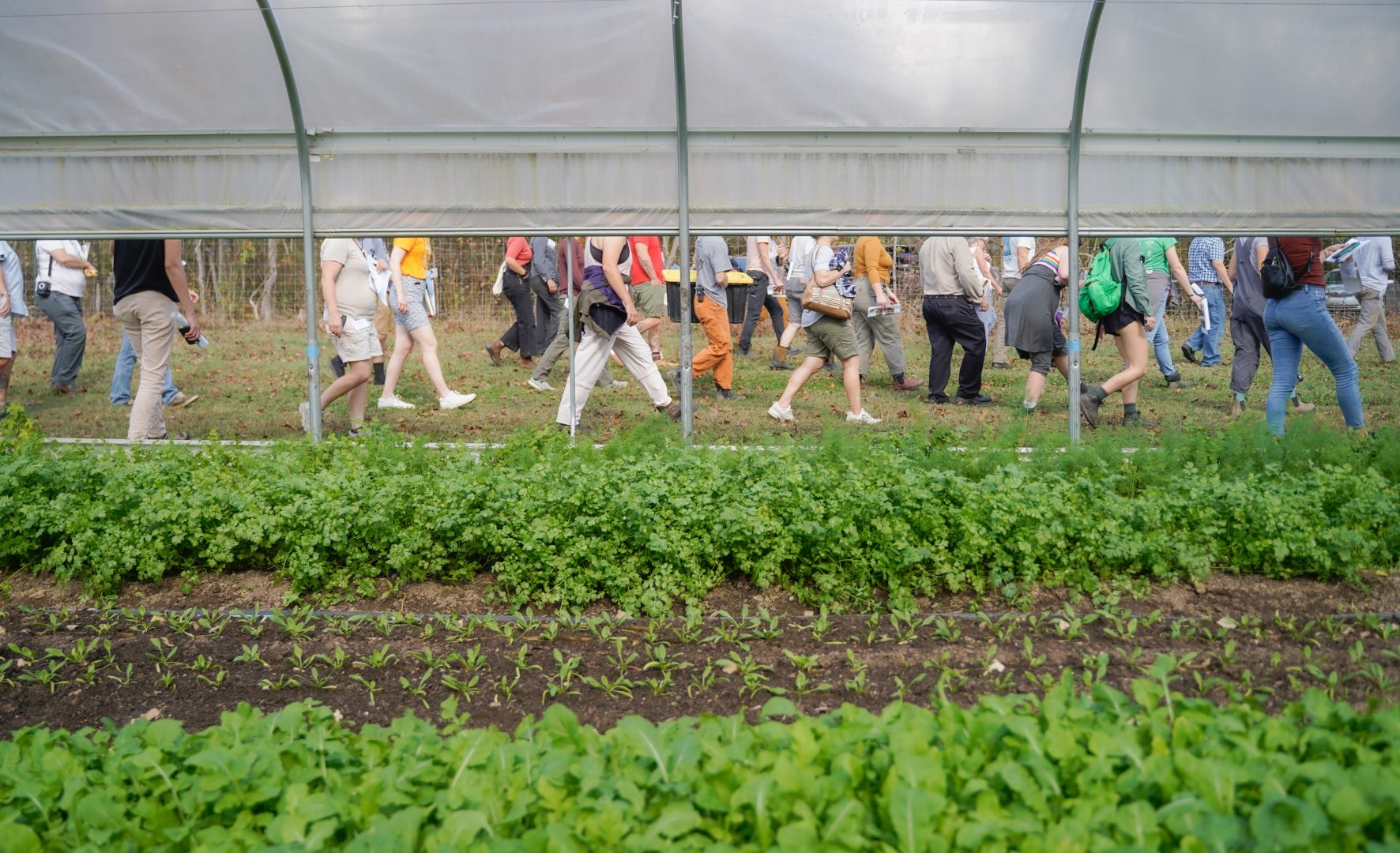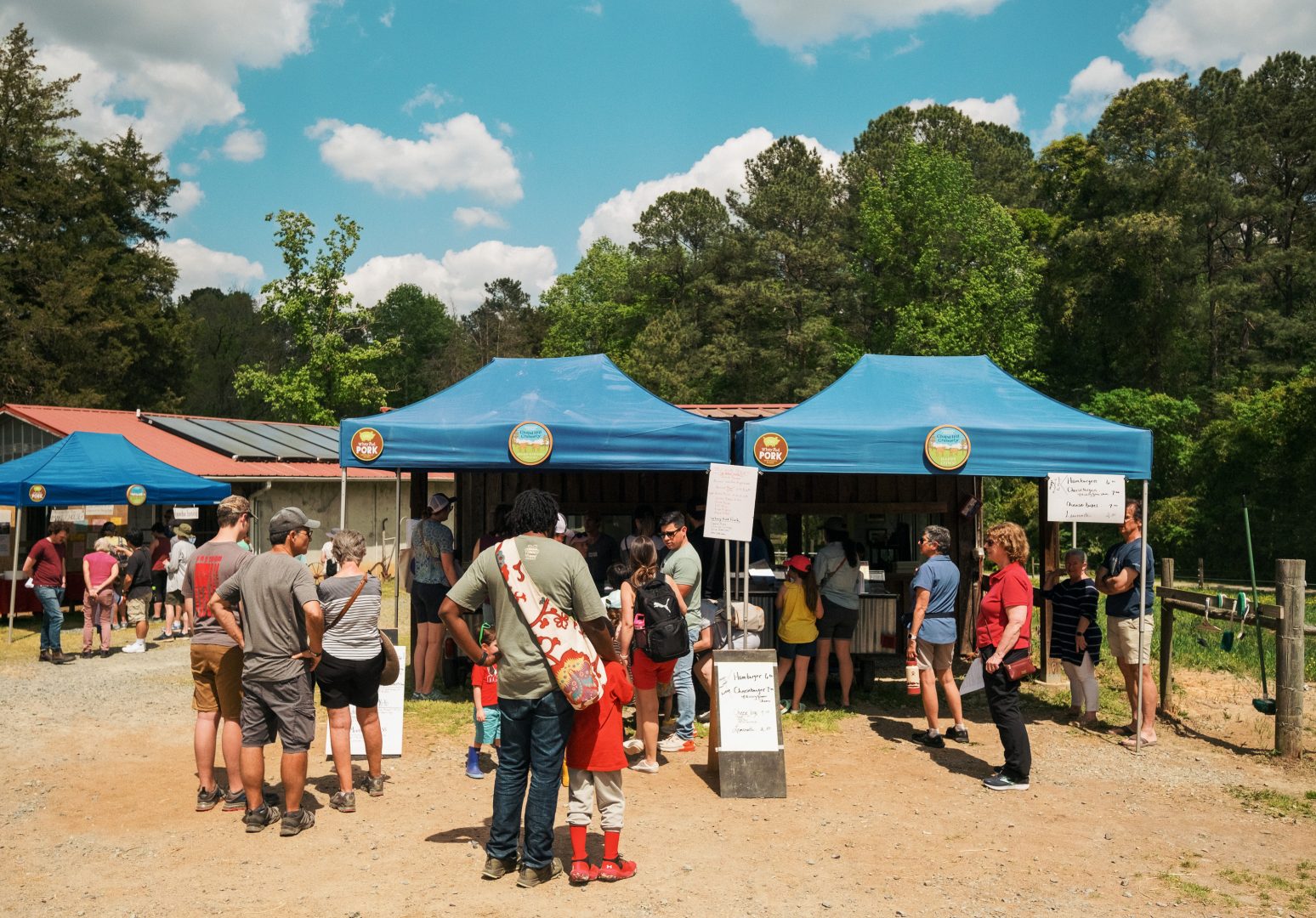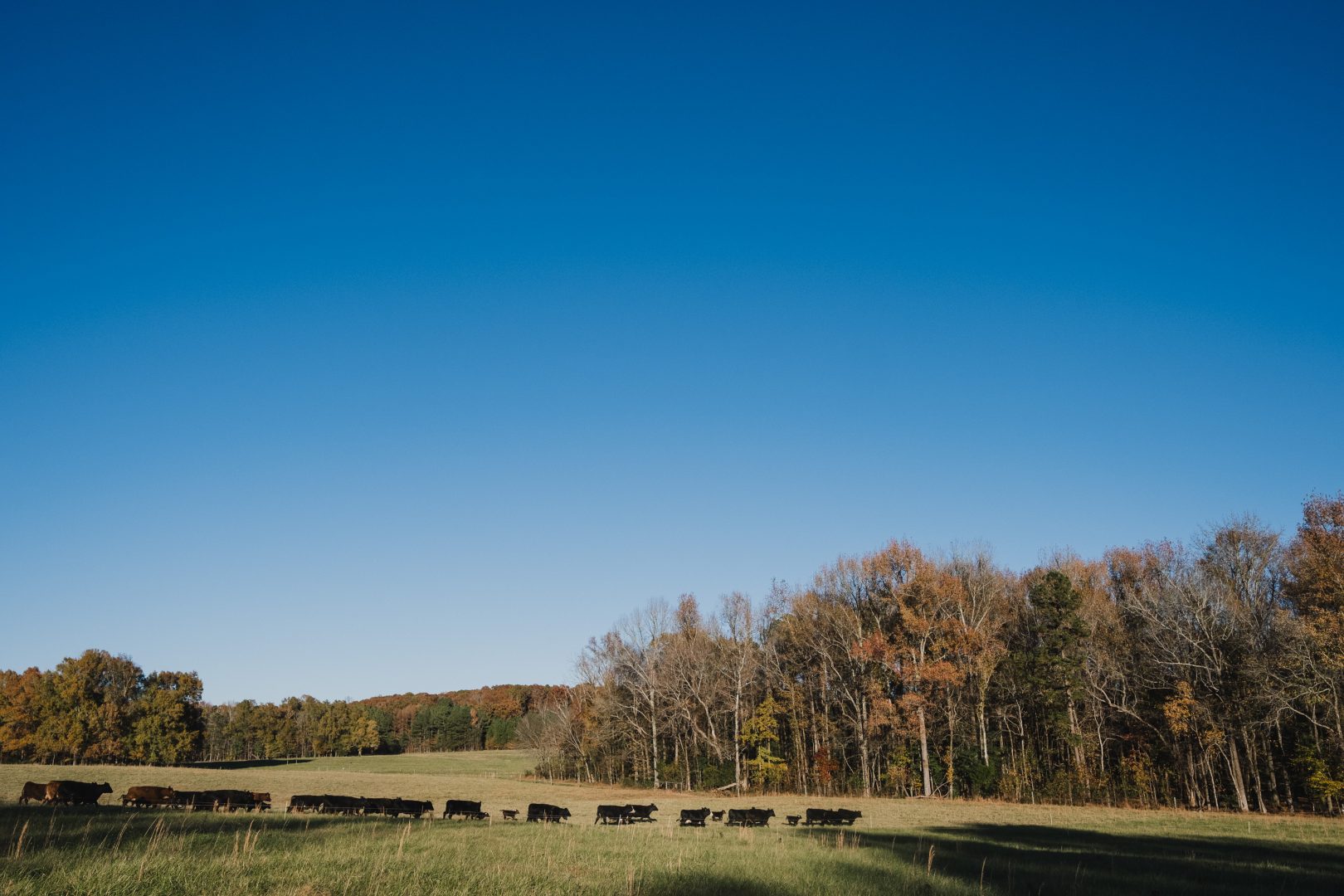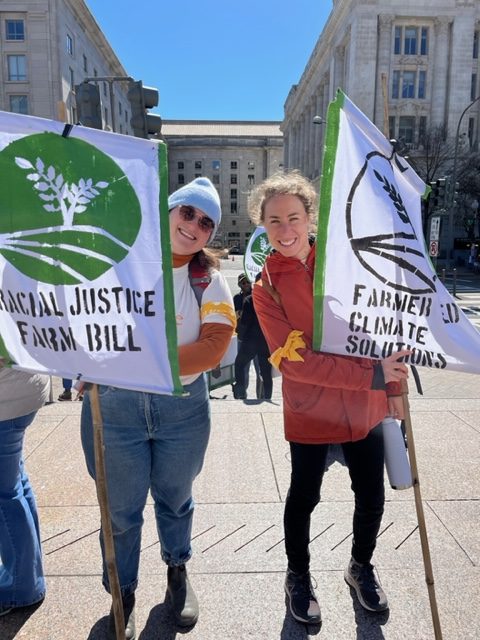What You Should Know About CFSA’s Policy Work
When small and mid-sized farms prosper because they are nurturing communities with healthy foods and a clean environment, we all win.
CFSA’s policy work champions ecologically beneficial and economically just alternatives to today’s exploitive corporate-dominated paradigm of agriculture.
Learn more about the issues and how we are working to transform agriculture policy below.
Promoting/protecting local food and small farms
Fighting for Fairness for Small Farms and Local Foods
At the heart of CFSA’s vision of agricultural transformation are small and mid-sized farms and local and regional food businesses that provide healthy food and economic opportunity for their communities here in the Carolinas. The Covid-19 pandemic has provided an object lesson in the brittle nature of the long national and international supply chains upon which our country depends for most of its food. And it has provided examples of how networks of small farms and local food distributors can, in fact, meet our needs for healthy food more effectively than the ‘conventional’ corporate-controlled supply chain does.
Local food systems face huge obstacles, however, in our current ag policy context that rewards size over all else. From food safety schemes that impose unjustified burdens on small farms and local food producers, to tax policies that disfavor small produce operations, to school food programs that are inaccessible to local farms, to competitive disadvantages for small-scale processing operations that could connect local farms to more markets, the rules of the road in food and agriculture drive the ‘get big or get out’ dynamic that has contributed to the loss of many farms in the Carolinas.
The country’s response to Covid-19 is providing some unprecedented opportunities to change our food system paradigm and re-center small farms as engines of health and prosperity. Consistent with our 40-plus-year track record, CFSA is today leading the charge in the Carolinas to seize this opportunity and build a viable alternative food supply chain that puts people and the planet above corporate profits.
Organic farming and ag resource stewardship
Making Farms Resilient, Combating Climate Change
Farmers have a huge role to play in sustaining our nation’s natural resources, and as climate change deepens, it is more urgent than ever to transform agriculture’s role from damaging Nature to healing it. As the sector most impacted by our relentlessly warming planet, farming has a vested interest in making that change. Growing a cover crop, installing native plants along a field for pollinators, using natural predators and crop rotations to control pests—these and other organic farming practices create resilient farm ecologies that can withstand more volatile weather and help arrest the worsening of climate change for future generations.
Too often, over the last 70 years, state and federal ag has discouraged good stewardship by rewarding the overproduction of vast monocultures without requiring basic conservation practices. From our founding in 1979, CFSA’s sustainable farmers have been advocates for reversing these incentives and making it easier for farms to partner with Nature to serve the best interests of people and the planet.
There are so many ways our government can act to promote healthy soils and agroecological farming: grants to cover the cost of better equipment, more research funding for organic agriculture, making corporations that pollute ag resources pay for the damage they cause, leveling the playing field for small farms to compete in the organic market. CFSA amplifies the voice of sustainable farmers in the fight for policy change to make agriculture resilient for our sake and future generations.
Food and farming equity
Building a Food System that Puts People First
Today’s government policies and programs for agriculture were largely conceived in the mid-Twentieth Century. While they were originally intended to promote democratic local control of ag policy, from the first they were structured to exclude Black and other farmers of color, and over the years, they have been further corrupted to support consolidation in agriculture and the expansion of corporate control over our food supply. The consequences have been devastating for rural economies, nutrition, and public health—the US spends less on food, and more on healthcare expenses, than any other developed country in the world, and has the worst income inequality.
From the dispossession of Indigenous people from their lands and the mass enslavement of Black people for agricultural labor during this nation’s origin period, to today’s food system that relies predominantly on underpaid immigrant and migrant farm and food processing workers, our food system has treated people of color with disdain and violence. And it fails to deliver equitable nourishment to people of color today: Black Americans are twice as likely to die from diabetes and 2.5 times more likely to be food insecure than white Americans.
To truly achieve a sustainable regional food system that is good for all consumers, farmers, farmworkers, and ecosystems, our generation must take responsibility for redressing these wrongs and transforming our food system, and CFSA and its members take this responsibility seriously. We have worked to expand access to local foods through food assistance programs, trained community members to engage in county and municipal food and ag governance, and advocated for fair investment in historically black agriculture schools, among other initiatives.





